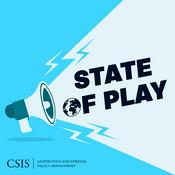216 episódios
- A cancer diagnosis can be devastating. And the chemotherapy that often follows can be particularly rigorous. The American Cancer Society projects that 2.1 million people in the United States will be diagnosed with cancer in 2026—but researchers are making major advances in cancer treatment and patient survival.
Ziyang Zhang is a chemist and 2023 Pew-Stewart Scholar for Cancer Research who leads cutting-edge studies on reducing the negative effects of chemotherapy on cancer patients. In his lab at the University of California, Berkeley, he and his team are producing new tools at the chemical level that will help to develop more effective therapies to target cancer mutations and avoid damage to healthy cells. - Last year, a devastating and deadly fire in Milwaukee forced residents to confront a painful reality: The places where many people can afford to live are often the least safe. As the United States faces a shortage of millions of homes, new research shows that the path to safer, more affordable housing may lie in modern multifamily buildings that are constructed with fire-resistant materials like sprinkler systems and stronger building codes. In fact, the rate of fire death in modern apartments is one-sixth the rate of single-family houses and older apartment buildings.
In this episode of "After the Fact," Pew housing expert Alex Horowitz explains how modern housing design can save lives, and why public misconceptions about density and safety can limit progress. We also travel to Milwaukee to learn from firefighters on the ground about why better policy and smarter construction can help shape safer homes for the future. - Each January brings legislators back to their statehouses, where budget decisions once again take center stage. In the past few years, state budgets have been bolstered by leftover pandemic-era federal aid. In fact, in 2023, federal dollars made up about 36% of state revenue.
But in 2026, new federal policy changes are in play that will leave lawmakers with tough choices about how to balance their budgets and still fund the programs that serve their constituents.
In this episode of "After the Fact," Pew expert Liz Farmer shares the key financial issues states will face this year and how they could affect your community. - For the first time in history, the world has formally agreed to protect nearly half the planet. In September 2025, the United Nations ratified the high seas treaty, officially known as the Biodiversity Beyond National Jurisdiction (BBNJ) Agreement—a landmark global pact to safeguard the parts of the ocean that lie beyond any one country's national jurisdiction.
These vast waters—the high seas—cover nearly half of Earth's surface and sustain much of the life on our planet. Yet until now, they've been largely ungoverned, leaving marine ecosystems vulnerable to overfishing, pollution, and the growing impacts of climate change. In this episode of "After the Fact," Pew's director of ocean governance, Liz Karan, explains why this moment represents one of the most significant conservation milestones in decades—and what comes next. - In the heart of South America, the Chaco-Pantanal region holds the planet's largest tropical wetland. It's a place that's teeming with colorful birds, capybaras, anteaters, and even jaguars. Unlike the Amazon, this region has largely resisted deforestation, so conservation here is about preservation, not restoration. Take a trip with us in this episode of "After the Fact," in which Amelia Moura and Natalia Araujo, who work on Pew's conserving the Pantanal and Gran Chaco of South America project, describe what it's like to visit the Chaco-Pantanal; how Pew works alongside local communities to further conservation efforts; and why it's important to safeguard this region for the future.
Mais podcasts de Ciência política
Podcasts em tendência em Ciência política
Sobre After the Fact
After the Fact is a podcast from The Pew Charitable Trusts that brings you data and analysis on the issues that matter to you—from our environment and the sciences, to larger economic trends and public health. Experts from Pew and other special guests discuss the numbers and trends shaping some of society's biggest challenges with host Dan LeDuc, then go behind the facts with nonpartisan analysis and stories.
Site de podcastOuça After the Fact, Conselho Federal de Psicologia e muitos outros podcasts de todo o mundo com o aplicativo o radio.net

Obtenha o aplicativo gratuito radio.net
- Guardar rádios e podcasts favoritos
- Transmissão via Wi-Fi ou Bluetooth
- Carplay & Android Audo compatìvel
- E ainda mais funções
Obtenha o aplicativo gratuito radio.net
- Guardar rádios e podcasts favoritos
- Transmissão via Wi-Fi ou Bluetooth
- Carplay & Android Audo compatìvel
- E ainda mais funções


After the Fact
Leia o código,
baixe o aplicativo,
ouça.
baixe o aplicativo,
ouça.




























